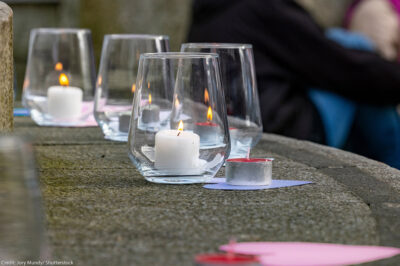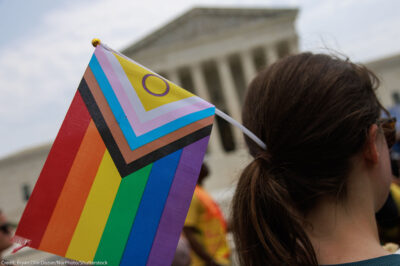House Introduces Bill to Modify RFRA to Prevent Discrimination and Harm
WASHINGTON — With support from the American Civil Liberties Union, Reps. Joe Kennedy (D-Mass.) and Bobby Scott (D-Va.) today introduced the Do No Harm Act in Congress to ensure that the Religious Freedom Restoration Act is not used in ways that result in discrimination and harm.
“Religious freedom gives us the right to our beliefs, but not to harm others,” said Louise Melling, deputy legal director of the ACLU. “The Do No Harm Act would place much needed limitations on RFRA so that it can be used as a shield for religious exercise but not as a sword. With the Do No Harm Act, RFRA could no longer be invoked to justify discrimination, denial of health care, or other harms. We at the ACLU are proud to stand in support of this legislation.”
Enacting the Do No Harm Act would restore federal RFRA to its original intent of protecting religious exercise and provide a model for states looking to expand protections for religious freedom without allowing harm to others. Numerous state legislatures have introduced state-level RFRAs modeled on the federal law.
In 2014, the Supreme Court ruled in Burwell v. Hobby Lobby Stores that under RFRA, certain employers could refuse to provide birth control coverage guaranteed to employees by law. This decision left female employees without coverage until an accommodation was extended to them — an accommodation which itself is the subject of ongoing litigation under RFRA.
A federal court relied on RFRA when holding that a member of the Fundamentalist Church of Jesus Christ of the Latter Day Saints could not be required to cooperate in an investigation of child labor violations. An analysis by the Bush administration’s Justice Department Office of Legal Counsel looked to RFRA to justify continued discrimination in federally funded programs by religiously affiliated entities on the basis of religion. And others, including the U.S. Conference of Catholic Bishops, have argued that RFRA requires exemptions from provisions barring discrimination against LGBT people in employment and health care in the context of government programs.
The Do No Harm Act identifies circumstances where RFRA cannot be invoked to trump the rights of others. These include:
· Nondiscrimination laws
· Workplace laws regarding wages and compensation
· Laws protecting children’s welfare
· Laws ensuring access to healthcare
· Provision of goods and services under government grants and contracts
· Provision of government services
In addition, the legislation clarifies that RFRA can only be used in suits in which the government is a party.




